Sullivan in China: US seeks responsible competition, China favours cooperation
While the meetings between US national security adviser Jake Sullivan and several Chinese leaders continued to highlight the different stances of the two countries on key issues, the high-level engagements — with more to come — could signal a channel for more cooperation, says Lianhe Zaobao Beijing correspondent Sim Tze Wei.
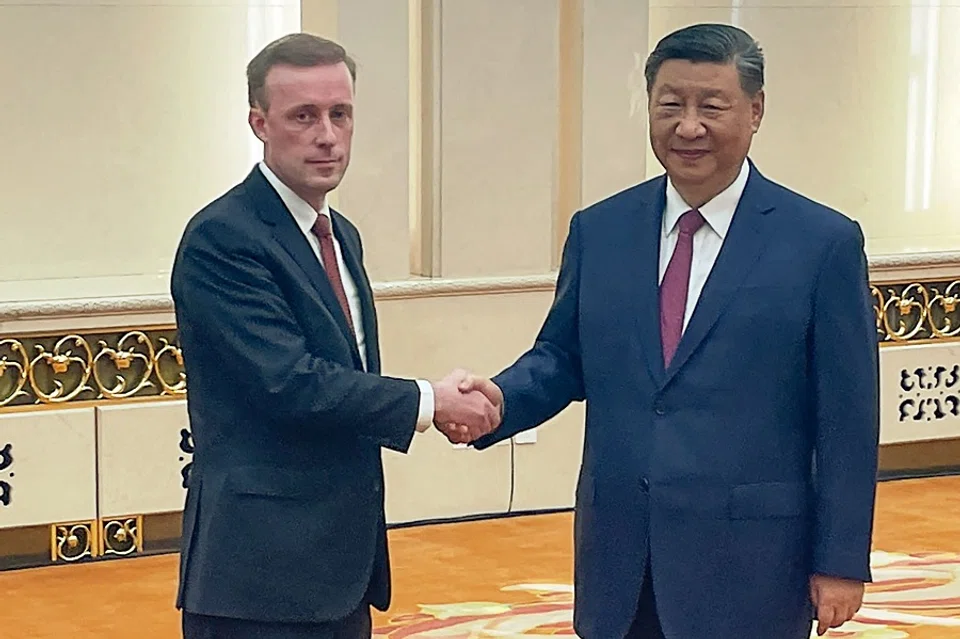
During Chinese President Xi Jinping’s meeting with US national security adviser Jake Sullivan in Beijing on 29 August, Xi said that China’s commitment to the goal of stable China-US relations remains unchanged, and hopes that the US would see each other’s development as an opportunity rather than a challenge.
Meanwhile, Sullivan reiterated US President Joe Biden’s commitment to prevent China-US competition from veering into confrontation or conflict, and that Biden is looking forward to meeting with Xi again soon.
That same day, Sullivan also met with General Zhang Youxia, vice-chairman of China’s Central Military Commission (CMC).
Reiterating hopes for cooperation
Zhu Feng, executive dean of the School of International Studies at Nanjing University, told Lianhe Zaobao that Sullivan’s visit to China signals the official launch of a high-level strategic dialogue channel between China and the US.
The fact that Xi and Zhang each met with Sullivan highlights the importance Beijing attaches to strategic dialogue with the US, which is crucial for deepening mutual understanding, preventing conflicts, and avoiding misjudgments between both sides and “has very significant and positive significance”.
He [Xi] hoped that the US will view China and its development in a positive and rational light, see each other’s development as an opportunity rather than a challenge...
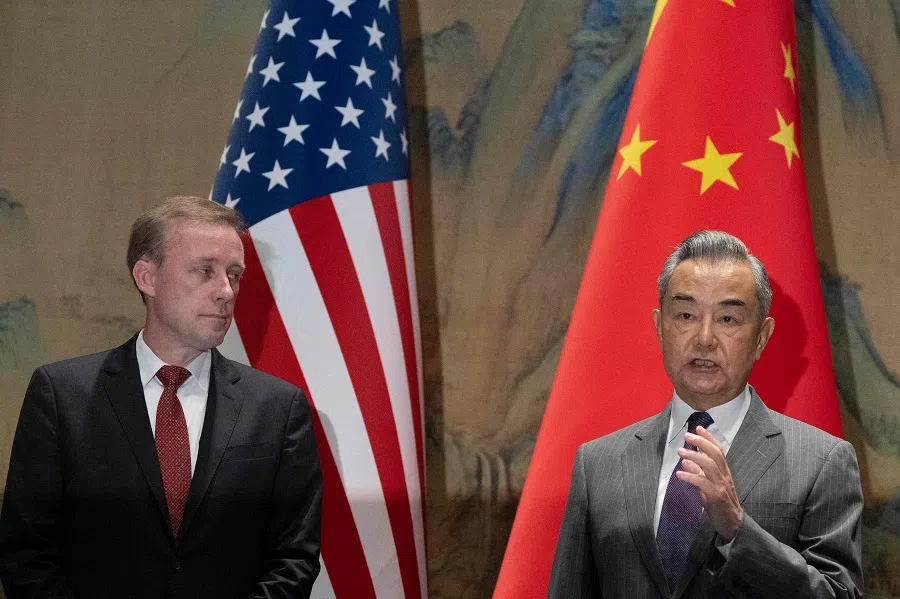
On the first two days of his three-day visit to China, Sullivan met with Wang Yi, Politburo member of the Chinese Communist Party Central Committee and director of the Office of the Central Commission for Foreign Affairs, for strategic communications on a wide range of complex topics between China and the US. He then separately met with Xi and Zhang on the last day.
Xinhua reported that in his meeting with Sullivan, Xi stressed that when the two major countries of China and the US engage with each other, the most important issue is to develop a right strategic perception, and they need to first and foremost find a good answer to the overarching question: are China and the US rivals or partners?
Xi reaffirmed that four things “remains unchanged”: China’s commitment to the goal of a stable, healthy and sustainable China-US relationship; its principle in handling the relationship based on mutual respect, peaceful coexistence and win-win cooperation; its position of firmly safeguarding the country’s sovereignty, security and development interests; and its efforts to carry forward the traditional friendship between the Chinese and American people.
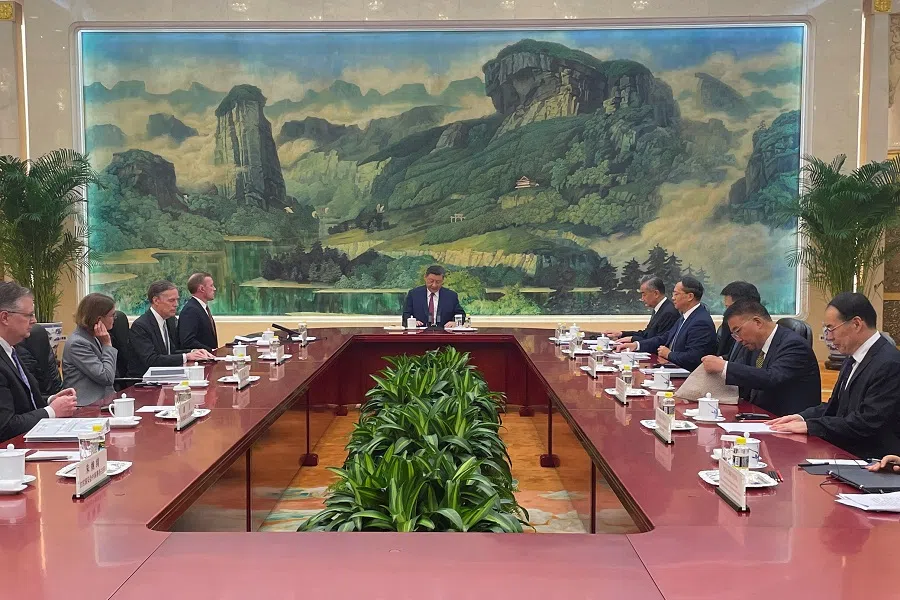
He hoped that the US will view China and its development in a positive and rational light, see each other’s development as an opportunity rather than a challenge, and work with China to find a right way for both countries to coexist in peace and achieve common development on this planet.
Xi also expressed his readiness to stay in touch with Biden.
... Beijing still hopes that Biden can visit China before he steps down. In particular, with the upcoming US presidential election in November, US politicians often paint China as a scapegoat in order to gain political capital. — Zhu Feng, Executive Dean, School of International Studies, Nanjing University
No new consensus
The US White House readout said that in Sullivan’s meeting with Xi, “both sides welcomed ongoing efforts to maintain open lines of communication”, including planning for a call between Biden and Xi in the coming weeks.
Nanjing University’s Zhu said that aside from calls between Chinese and American leaders and possible encounters at multilateral events, Beijing still hopes that Biden can visit China before he steps down. In particular, with the upcoming US presidential election in November, US politicians often paint China as a scapegoat in order to gain political capital.
If Biden were to visit China, it would not only demonstrate that China-US relations will not easily slip into division, but also help ease US policy pressure on China.
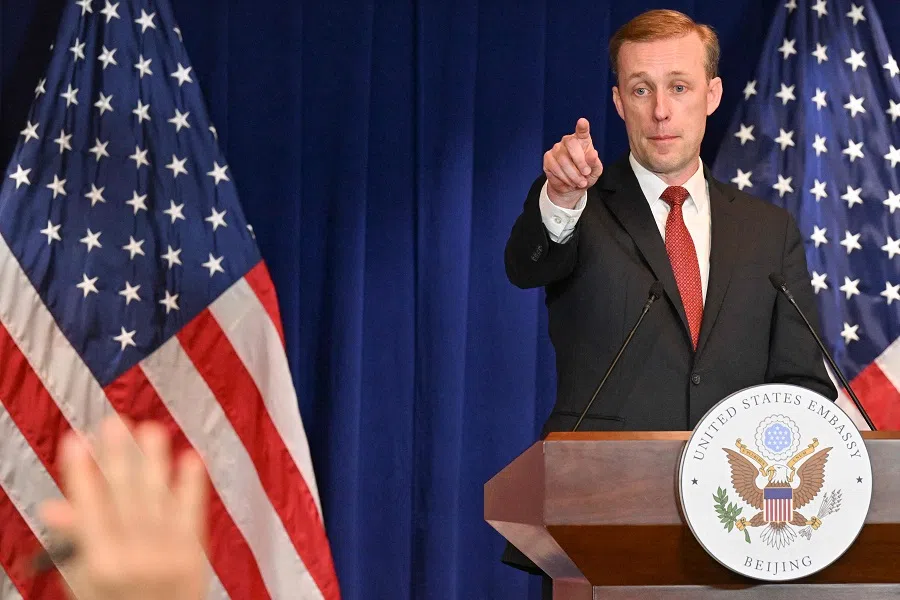
According to Reuters, after concluding talks with China on 29 August, Sullivan revealed to the media that the 14-hour discussion with China covered topics such as Taiwan, South China Sea, Russia and US demands for China to crack down on fentanyl precursor exports.
Sullivan said that there were significant differences between the two sides on certain issues, such as the South China Sea, where no new consensus was reached, and “vigorous give and take” on economic security and trade issues.
Bloomberg quoted Sullivan as saying, “Obviously we didn’t come to agreement on certain aspects of things, but I think the dialogue is very useful.”
... it is relatively uncommon for the CMC vice-chairman to meet with high-ranking US national security officials; thus, the meeting reflects China’s desire to stabilise US-China relations through high-level interactions. — Associate Professor Li Mingjiang, RSIS, NTU
More high-level interactions
The US and China showed more agreement on conducting exchanges between the two countries’ leaders and between military commanders, with Sullivan having a rare discussion with General Zhang Youxia, vice-chairman of the CMC.
Li Mingjiang, an associate professor at the S. Rajaratnam School of International Studies (RSIS) at Nanyang Technological University (NTU), analysed that it is relatively uncommon for the CMC vice-chairman to meet with high-ranking US national security officials; thus, the meeting reflects China’s desire to stabilise US-China relations through high-level interactions.
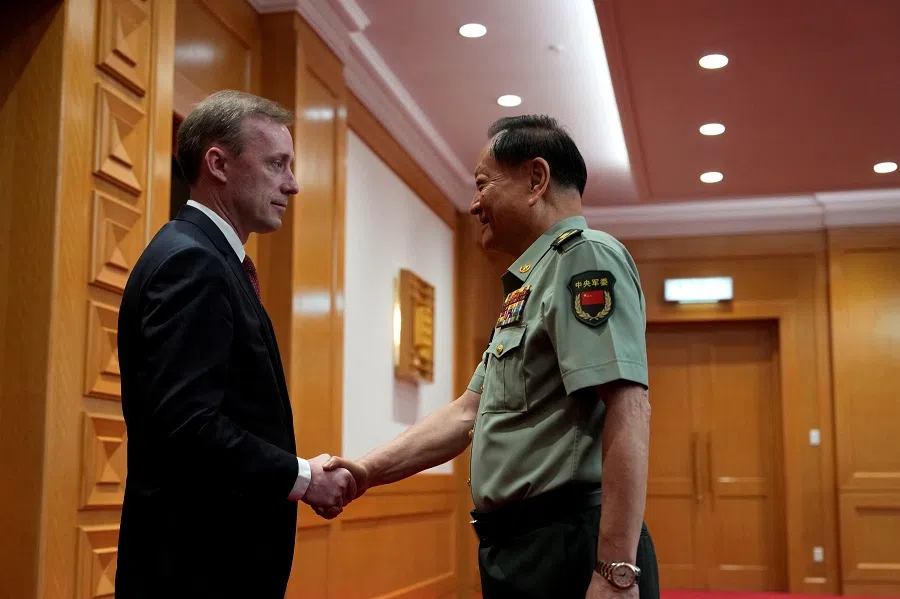
Li said that both the US and China understand that their differences cannot be resolved through high-level dialogue, but the main aim is to prevent bilateral relations from deteriorating into confrontation. The US hopes to manage US-China competition responsibly, while China is in fact leaning towards cooperation as opposed to competition.
James Char, research fellow with the China Programme at RSIS, said, “Any form of in-person interaction between the leaders of both sides and their top aides is a welcome development — although it will not resolve the structural contradictions inherent in their geostrategic rivalry.”
According to a White House press release, Sullivan reiterated to Zhang the importance of dialogue between the US and Chinese militaries, adding that a call between theatre commanders is in the works. Sullivan also emphasised the importance of peace and stability across the Taiwan Strait, the US commitment to freedom of navigation in the South China Sea, and US concerns over China’s support for Russia’s defence industry.
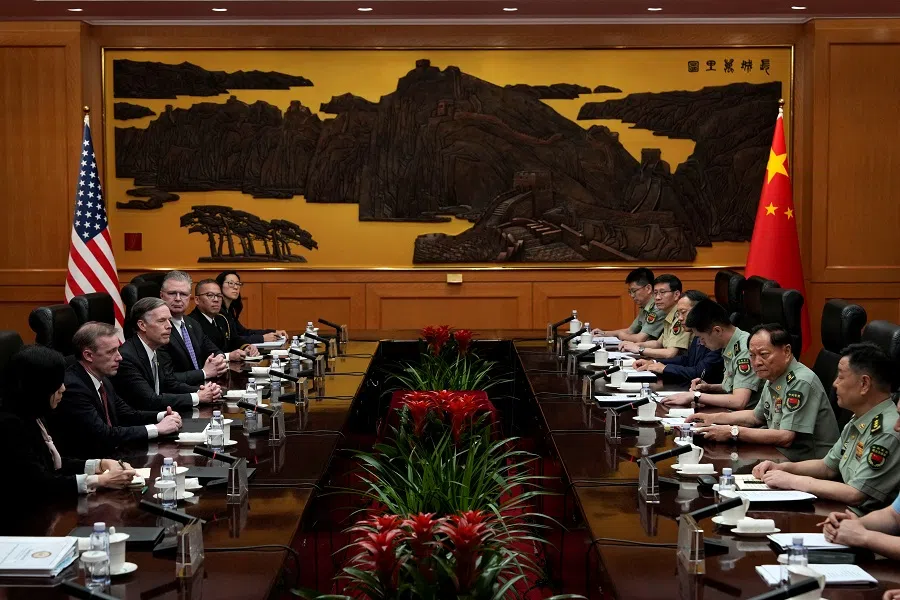
According to China’s Defense Ministry website, Zhang proposed three “stops”: for the US to stop military collusion with Taiwan, stop arming Taiwan, and stop spreading false narratives related to the Taiwan question. Zhang stressed that the Taiwan question is “at the very core of China’s core interests” and “the first red line that must not be crossed in China-US relations”.
This meeting marked the first time Zhang met with a high-ranking official from the Biden administration, and the first meeting between a US national security adviser and a CMC vice chairman in eight years. The last meeting was between then US national security adviser Susan Rice and then CMC vice-chairman Fan Changlong in 2016.
This article was first published in Lianhe Zaobao as “习近平张又侠分别会见沙利文 学者:北京重视中美战略对话以防冲突”.
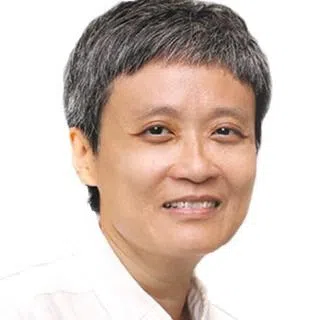




![[Big read] When the Arctic opens, what happens to Singapore?](https://cassette.sphdigital.com.sg/image/thinkchina/da65edebca34645c711c55e83e9877109b3c53847ebb1305573974651df1d13a)